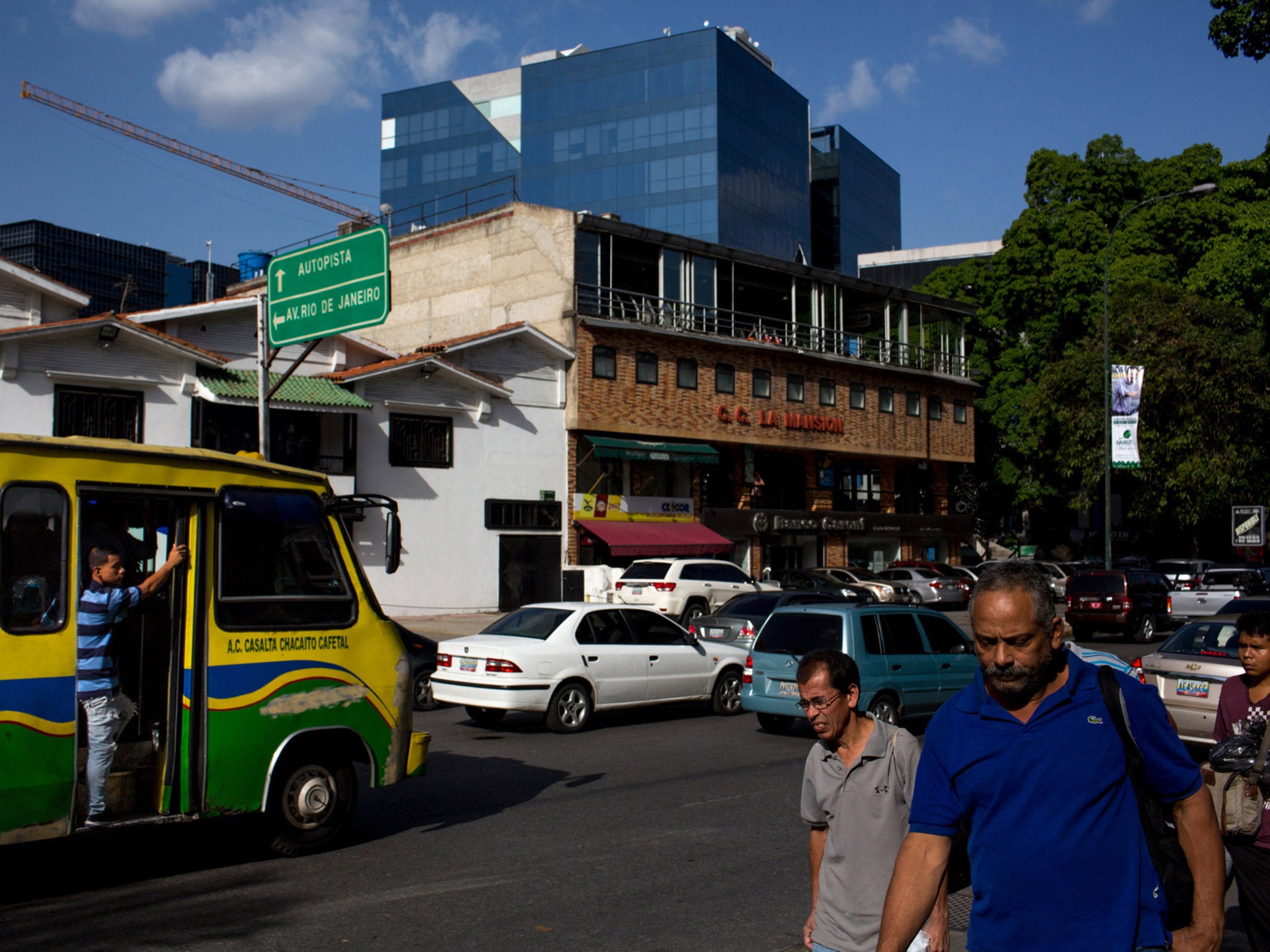In Caracas of all places, a construction boom suddenly emerges
The obvious question is, who in crumbling Caracas will rent the slick retail and office spaces and buy the fancy condos?

Your support helps us to tell the story
From reproductive rights to climate change to Big Tech, The Independent is on the ground when the story is developing. Whether it's investigating the financials of Elon Musk's pro-Trump PAC or producing our latest documentary, 'The A Word', which shines a light on the American women fighting for reproductive rights, we know how important it is to parse out the facts from the messaging.
At such a critical moment in US history, we need reporters on the ground. Your donation allows us to keep sending journalists to speak to both sides of the story.
The Independent is trusted by Americans across the entire political spectrum. And unlike many other quality news outlets, we choose not to lock Americans out of our reporting and analysis with paywalls. We believe quality journalism should be available to everyone, paid for by those who can afford it.
Your support makes all the difference.You can still find a place to enjoy a nice steak dinner in Las Mercedes, the Caracas district once known for discos and beer-by-the-bucket pubs. Mostly, though, it’s shuttered stores and graffiti-swamped apartment blocks punctuated by busted street lights. And the strangest thing: scaffolding.
On brand-spanking new construction, no less. This seems wildly out of place in the economic basket-case capital of the world, more known for rampaging inflation and drone attacks on its president. But there it is on Paris Street. And over on Jalisco. And on block after block. Las Mercedes, it turns out, is where some of Venezuela’s richest citizens, prohibited from moving cash out of the country, are parking it.
The mogul Oswaldo Cisneros and the hotelier Salomon Muci are among those investing in the mixed-use buildings there, with names like Luxor and Tower 302 that will boast “exclusive local shops” and marble finishes, as promotional materials tout. A few other neighbourhoods are witnessing mini-construction booms, too, but Las Mercedes may be the busiest with, according to the mayor’s office, an astounding 73 projects underway.
The obvious question is, who in crumbling Caracas will rent the slick retail and office spaces and buy the fancy condos? The answer might be, at least in the short term, who cares?
“With the cash and currency-exchange controls in place, investors are wisely deciding to invest in brick,” says Alfred Scheer, head of the real estate developer Vantage Latin America. Someday it might even pay off. “We trust that a political change will come sooner or later and we want to be prepared.”
May’s election, boycotted by the opposition and denounced by the US, the EU and others as unfair, maintained the precarious status quo. It kept Nicolas Maduro in the presidency of a country overwhelmed by rampant crime, crippling shortages of basic goods, widespread hunger and inflation that is running over 20,000 per cent.
Bank accounts pay laughable interest or none at all. For those few with spare bolivars, there aren’t many options to watching its value evaporate. The currency controls first established in 2003 by the regime of the late Hugo Chavez are quite strict. And the black market isn’t that big, so it’s tricky to sneak money out.
Many affluent Venezuelans, of course, had protected a good deal of their wealth by shifting it abroad before the government cracked down. But they still have business interests in the country – Cisneros controls the wireless operator Digitel, for example, and Muci is a director of and owns shares in the Intercontinental Tamanaco Caracas – and continue to accumulate cash they have to deal with.
So the construction crews are at work in Las Mercedes, and in Chacao and in Valle Arriba in Baruta, where most embassies have their diplomatic offices and residences. The 40-floor Provincial Tower on Francisco de Miranda Avenue is being expanded to add another building. Residences Casa 27 in Campo Alegre is billed as a palatial complex that will have extraordinary views of the golf courses of the Caracas Country Club and the Avila.
On a hill overlooking the city, dozens of units are already for sale in the unfinished Panorama Mirador de Los Campitos Residence; a four-bedroom, four-bath is asking 1.1 trillion bolivars. That’s 411 times what an ordinary Venezuelan, if he or she actually has a job, earns in a month.
All the high-end building has some Caraquenos scratching their heads. “This doesn’t make sense to me,” says Freddy Calderon, who works in a Las Mercedes parking lot. “With the economy at its worst stage, and with all the problems we Venezuelans are facing right now – it doesn’t make sense.”
For Caracas boosters, though, it’s exciting, a sign that, as Aquiles Martini Pietri put it, the country isn’t going to just “sink into a deep hole”. He’s an official at Fedecamaras, a chamber of commerce, and sees the positive spin.
“There are people who have enough cash flow that allows them to continue investing. There are people who still believe in and are betting on Venezuela.”
© Washington Post
Join our commenting forum
Join thought-provoking conversations, follow other Independent readers and see their replies
Comments